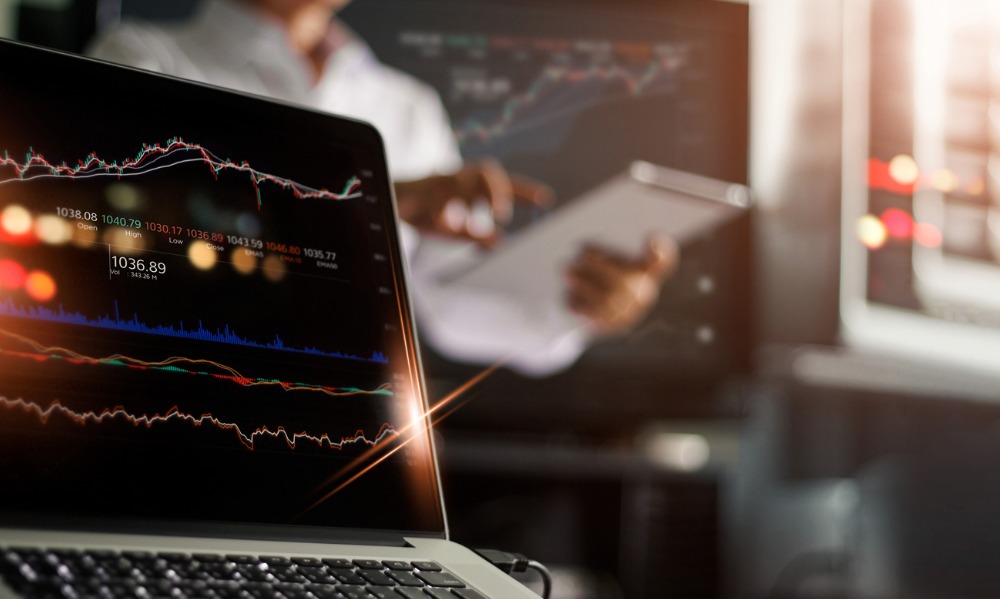Portfolio manager assesses the downturn and tells WP the sector he thinks will lead us out of this crisis

For a market seemingly sensitive to every cough and wheeze, the World Health Organization’s announced that we are officially living amid a pandemic was the final straw: Canada is now in a bear market.
Faster that you can say Covid-19, the country’s stock market has gone from bull to bear. For the record, it took just 14 days, wiping out $454.2 billion in the process as the escalating coronavirus outbreak and plunging oil prices sent prices spiralling.
The benchmark S&P/TSX Composite Index has slumped 20% from its February 20 closing peak. Of course, investors’ woes are not restricted to Canada. On a day when the U.K. threw billions of pounds at the problem with a blockbuster budget, President Donald Trump’s administration watched as the Dow Jones Industrial Average tipped into a bear market, ending the longest bull run in the history of American equities. It ended 20% below its February closing record, while the S&P 500 dipped into bear territory before closing 19% below its high.
Hans Albrecht, portfolio manager at Horizons ETFs, told WP that while the virus scare is a catalyst, there are other factors at play that reflect deeper, underlying problems and a sentiment that equities were priced to perfection before this sell-off. Corporate debt has soared during this bull run and, unlike in 2008, is spread broadly across the economy.
How much pain, therefore, can these companies take? Albrecht expects bankruptcies in the energy space, while cruise ship and travel companies are potentially in a lot of trouble. The recession has arrived, he said, and North America may have to deal with a consumer who is suddenly reluctant to spend money.
“That's been the big underpin to this market,” he said. “Even last year, business sentiment wasn't great, but what was bailing out the whole world? The U.S. consumer. If the U.S. consumer gets affected and we also see some rising unemployment over this, it’s a new picture for people, and they’re not used to it.”
Accentuating the predicament is that central banks have been fuelling the economy with liquidity, leaving monetary stimulus less effective. Albrecht believes that there is a fear that the current smorgasbord of issues is too much for the market to handle and, at this point, believes investors should stick to their plan.
He said: “This is your chance to pick up good names that you've liked. The world isn’t going to end. The reason people have pushed into US stocks over the past 10 years is because they're the most profitable, there's some of the most technologically innovative companies around.
“The money eventually has to go somewhere and now bonds are trading at almost zero yield. The present value of cash flows and the likes of Apple are fantastic compared to what I can get in bonds and people are going to push back into the market.
“I don’t think it’s time to sell. It’s time to sit tight and possibly put some money to work when you get a chance.”
So where should an investor put that cash as governments line up to provide stimulus and “pull out every trick in the book”?
Albrecht believes that strong balance sheets are essential and that technology emerges as “something of a hero”. For example, think the use of autonomous vehicles to deliver supplies to hospitals in China, robots disinfecting hospital rooms and other forward-thinking A.I. companies. He also loves semi-conductor makers like Nvidia and cyber security names. “The crooks won't be going away no matter what the economy does,” he said.
Gold is a traditional but effective safe haven and one Albrecht loves. “All this endless stimulus and ever manner of support and negative rates is what I call new math. Gold is the old math, a Millenia old store of wealth, and people are rediscovering it. And not just the tin hat doom and gloom people!”
He added: “I think we continue to see technology, data, automation and robotics, and software lead us out of this problem. I think we’ll emerge with some of these strong sectors. They’ve been strong for a while, so it doesn't sound that original, but this situation only makes those arguments stronger.
“In other parts of the economy, you’ve got to look at solid balance sheets and names that are going to be able to withstand big drawdowns. Good companies like Costco, for example. They’re still going to sell lots of stuff.”



